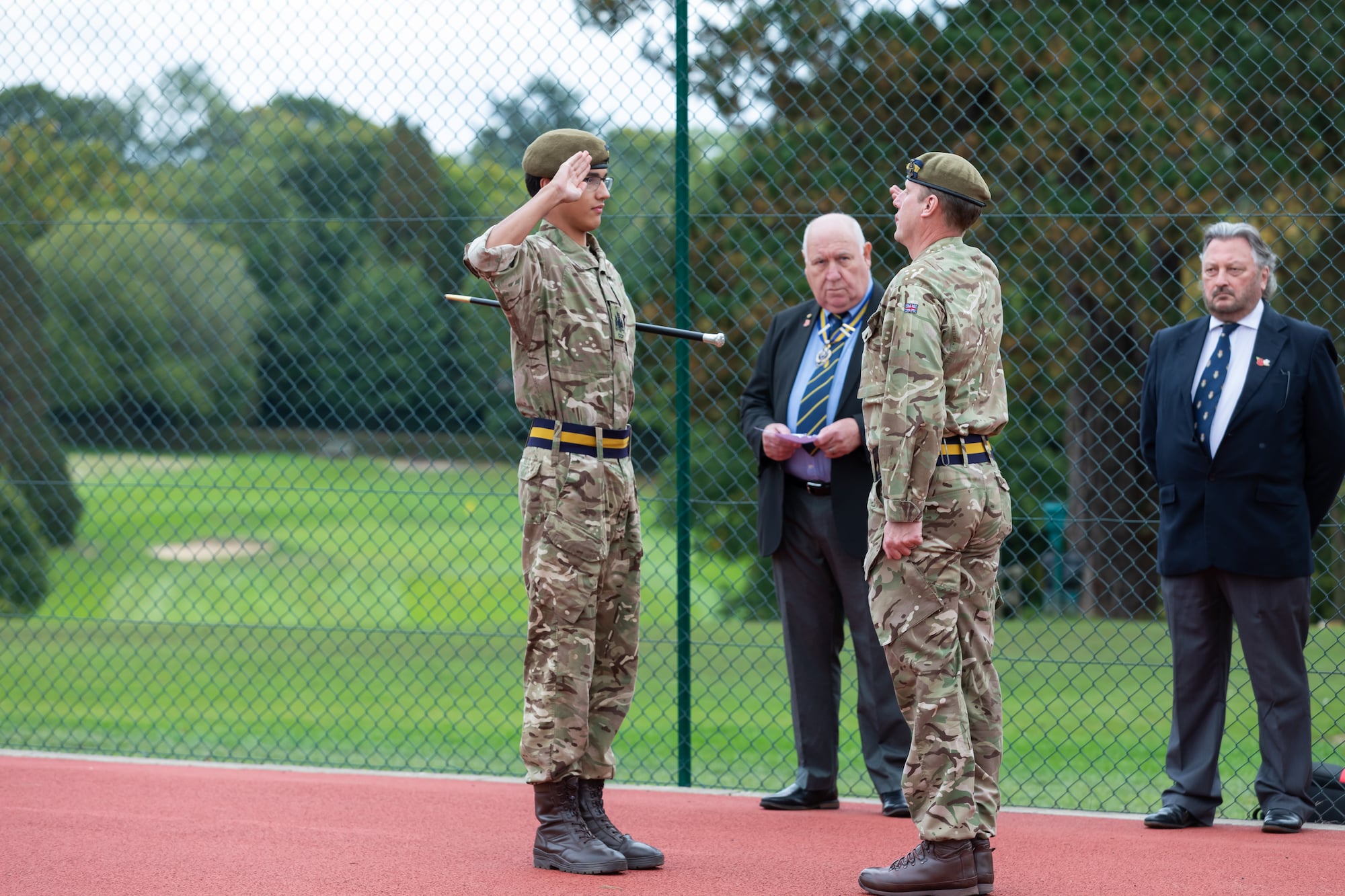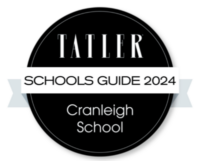Composer Ralph Vaughan Williams spent a large part of his life near Dorking and made the Leith Hill Festival world famous. He wrote his oboe concerto there in 1944 and 69 years later on 19th April another Surrey musician, Harry McCagherty (UVI, North), principal oboe with the Surrey County Youth Orchestra, gave a mellifluous account of the concerto in our Speech Hall. He was given the opportunity by Head of Cranleigh Music Marcus Pashley in the annual concert by the Merriman Concert Orchestra, in which one of Cranleigh School’s leading musicians is chosen to play a concerto with this fully professional orchestra. With the demise of the Guildford Philharmonic Orchestra, local music-lovers are grateful for such concerts (the orchestra recently performed also in Mozart’s ‘Requiem’ at GLIVE) and one member of the Vaughan Williams Society had no hesitation in driving from Woking to hear this rarely performed and quintessentially English pastoral work.
Harry played with beautiful pure tone (in the tradition of the work’s dedicatee Leon Goossens) and the strings gave a really crisp and sensitive accompaniment. In the first movement Harry really captured the work’s poetic spirit and the technically challenging passage-work sounded as natur al and fluent as if it were improvised: playing from memory freed him up to do this. Harry brought out the contrasting dance-like character of the middle movement and in the finale one heard something close to the spirit of Michael Tippett’s music, as the piece becomes more a commentary on the pastoral than the thing itself. The wistfulness turned to real melancholy, as if Harry had considered how this Second World War piece (its premiere postponed because of bombing raids) echoes the ‘Pastoral’ symphony that reflected Vaughan Williams’s experience in the Royal Army Medical Corps in WW1 (he joined up at the age of 41). It was clear that Harry could not just play (and memorise) all the notes, but had thought deeply about the meaning of the music; it certainly made me hear even more depths in a concerto I heard in the first concert I ever attended, almost to the day, 40 years before this one.
al and fluent as if it were improvised: playing from memory freed him up to do this. Harry brought out the contrasting dance-like character of the middle movement and in the finale one heard something close to the spirit of Michael Tippett’s music, as the piece becomes more a commentary on the pastoral than the thing itself. The wistfulness turned to real melancholy, as if Harry had considered how this Second World War piece (its premiere postponed because of bombing raids) echoes the ‘Pastoral’ symphony that reflected Vaughan Williams’s experience in the Royal Army Medical Corps in WW1 (he joined up at the age of 41). It was clear that Harry could not just play (and memorise) all the notes, but had thought deeply about the meaning of the music; it certainly made me hear even more depths in a concerto I heard in the first concert I ever attended, almost to the day, 40 years before this one.
At the end of his performance Harry’s friends in the audience led a cheering, standing ovation to end the first half of the concert. The rest of the programme was comprised of famous pieces on the theme of ‘Romeo and Juliet’. The famous Tchaikovsky Fantasy Overture began the evening and this was a really arresting performance from the very first woody bassoon tone to the swooning massed strings in the love theme. Leader Kevin Weaver brought an aristocratic Russian dignity to the string section (avoiding a Hollywood excessiveness) and it was luxury indeed to have two world-class ’cellists on the first desk: our visiting coach Andrew Fuller and OC Jonathan Hennessy-Brown. The horns glowed like gold (full marks to the conductor for letting them ring out) and the attack in the fight music was viscerally exciting. Lucky the young pupil who was discovering the music this night, but lucky too we hard-bitten concert-goers to hear so committed a performance, rather than a London orchestra playing it for the umpteenth time on auto-pilot.
Young listeners might also have recognised Prokofiev’s ‘Dance of the Knights’, popularised by ‘The Apprentice’ and used in the first movement of this suite, one of three the composer made from the full ballet. I was privileged to attend the rehearsals for the second half music and it was fascinating to observe how in a one-rehearsal gig like this, an experienced conductor must trust the players, knowing that small slips or false entries will correct themselves on the night but knew that the ‘Juliet’ music needed to be repeated to achieve a true lightness. As his programme notes showed, Marcus had thought about matching the music to the original Shakespeare characters. There are many wonderful flute solos in the Prokofiev and the orchestra is fortunate to have Head of Woodwind Ruth Miller to play these.
Marcus Pashley was in his element in Bernstein’s ‘West Side Story’: might we hope for it as a School musical one day? The large orchestra was supplemented by no fewer than six percussionists and it was especially exciting to hear the power and colour of a live symphony orchestra letting their hair down (most had some…) in an English public school Speech Hall, rather than the New York school gym featured in the musical. These players knew the idiom but their familiarity with the great tunes did not prevent this performance from reminding us of the sheer modernity of Bernstein’s invention: only 13 years after the Vaughan Williams the post-war euphoria has become an ecstatic frenzy. It is also always a special delight to hear classically trained English musicians clicking their fingers and shouting ‘rumble!’ But it was not all sound, fury and bongos: the solo viola in ‘Somewhere’ was just one example of how a fine orchestra is also a huge chamber group of soloists.
It seemed sad in January that weather had to lead to this concert being postponed but the spirit of the evening certainly suited the long-awaited signs that the summer of 2013 might actually arrive.
PJL
Back to all news











